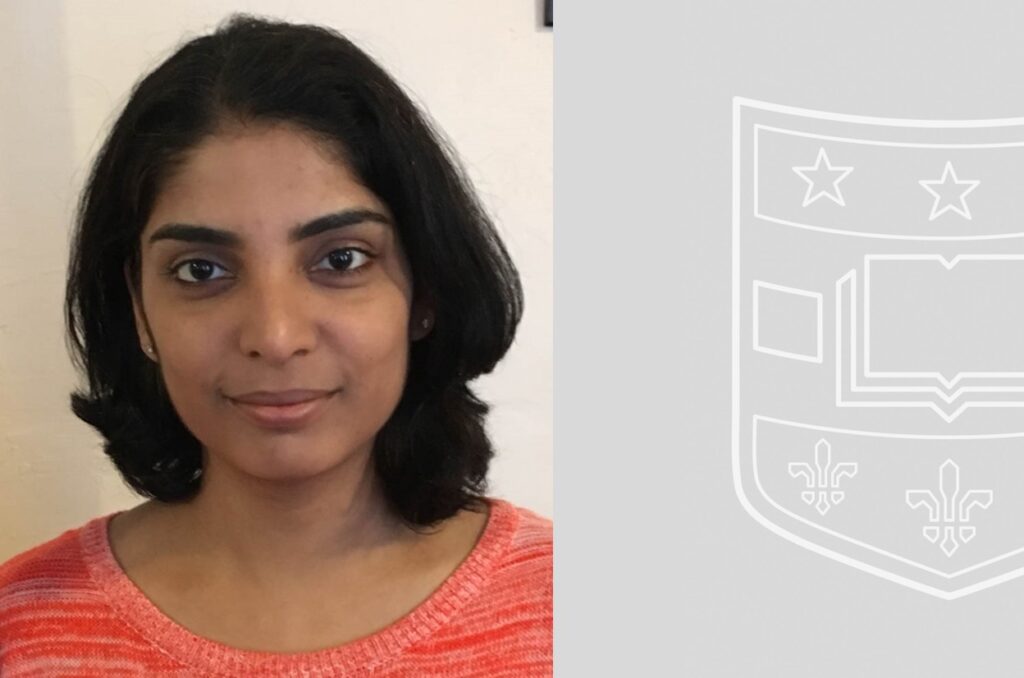Dr. Priyanka Verma is an assistant professor for the Oncology Department at Washington University School of Medicine and a graduate of the National Institute of Immunology in New Delhi, India. Dr. Verma is intrigued with the conundrum that while DNA replication and repair are essential for viability, cancer cells with defects in these pathways evolve mechanisms to ensure rapid proliferation. Unravelling this enigma offers possibilities to understand mechanisms that lead to genomic instability and identify vulnerabilities that can catalyze the development of improved therapeutic regimens. To address these questions, Dr. Verma employs advanced CRISPR genetic screens and cancer genome mining tools to uncover biological circuits that are essential in cells with compromised DNA repair. She then integrates this information with several biochemical and cellular tools to decode the mechanisms and consequences of these cancer-specific re-wiring events.
The specific questions Dr. Verma is interested in investigating are: What dictates cellular responses to chemotherapy targeting DNA repair pathways? DNA repair pathways have been the target of multiple chemotherapies that are either FDA-approved or are in clinical trials. The success of these therapies depends on the increased reliance of rapidly proliferating cancer cells on DNA replication and repair pathways. However, holistic responses to chemotherapies are an amalgamation of multiple cellular pathways and physiological settings. Dr. Verma is interested in decoding the molecular determinants that dictate chemotherapeutic response with the goal to tailor treatment regimen and uncover biological circuits that ensure genomic stability. How cancer cells deal with roadblocks to replication? Oncogenic transformations are often associated with genomic alterations that can challenge DNA replication. Owing to the essentiality of genome duplication for cell survival, cancers evolve pathways to surmount obstacles to replication. Intriguingly, depending on the cellular context, these obstacles come in “different flavors”. By designing genetically defined systems to mimic different replication stress responses, Dr. Verma aims to define genome rescue mechanisms that are common and unique across cancer types. What are the endogenous DNA lesions in BRCA-mutant cancer cells? Cancers are characterized by aberrations in chromosomal numbers and characteristic DNA lesions, including damaged replication forks, single-strand breaks and double-strand breaks. The endogenous sources of these abnormalities remain unclear. In theory, any unresolved chemical modification in the nucleotide backbone of DNA can be the initiating molecular event for genomic instability when BRCA-dependent DNA repair pathway fails.
Dr. Verma is interested in examining the link between nucleotide abnormalities and oncogenic transformations in BRCA-deficient cancers. This information will be key to understanding the innate molecular events that led to malignancy, and perhaps also reveal the basis for the known predilection of BRCA deficiency to result in cancers only in specific tissue types. With these studies Dr. Verma also aims to discover biomarkers that can aid in the early detection of cancer and identify exogenous exposures that can lead to the genesis of such precipitating genomic lesions. Teaching and clinical responsibilities Dr. Verma is committed to overseeing her research and mentoring fellows, residents, pre- and post-doctoral students. She will also actively participate in various teaching courses for the pre-doctoral students. Dr. Verma will also leverage the unique clinical resources at WUSM for her research and aims to collaborate with the physicians and physician scientist to catalyze our understanding of genomic instability in cancer cells.
